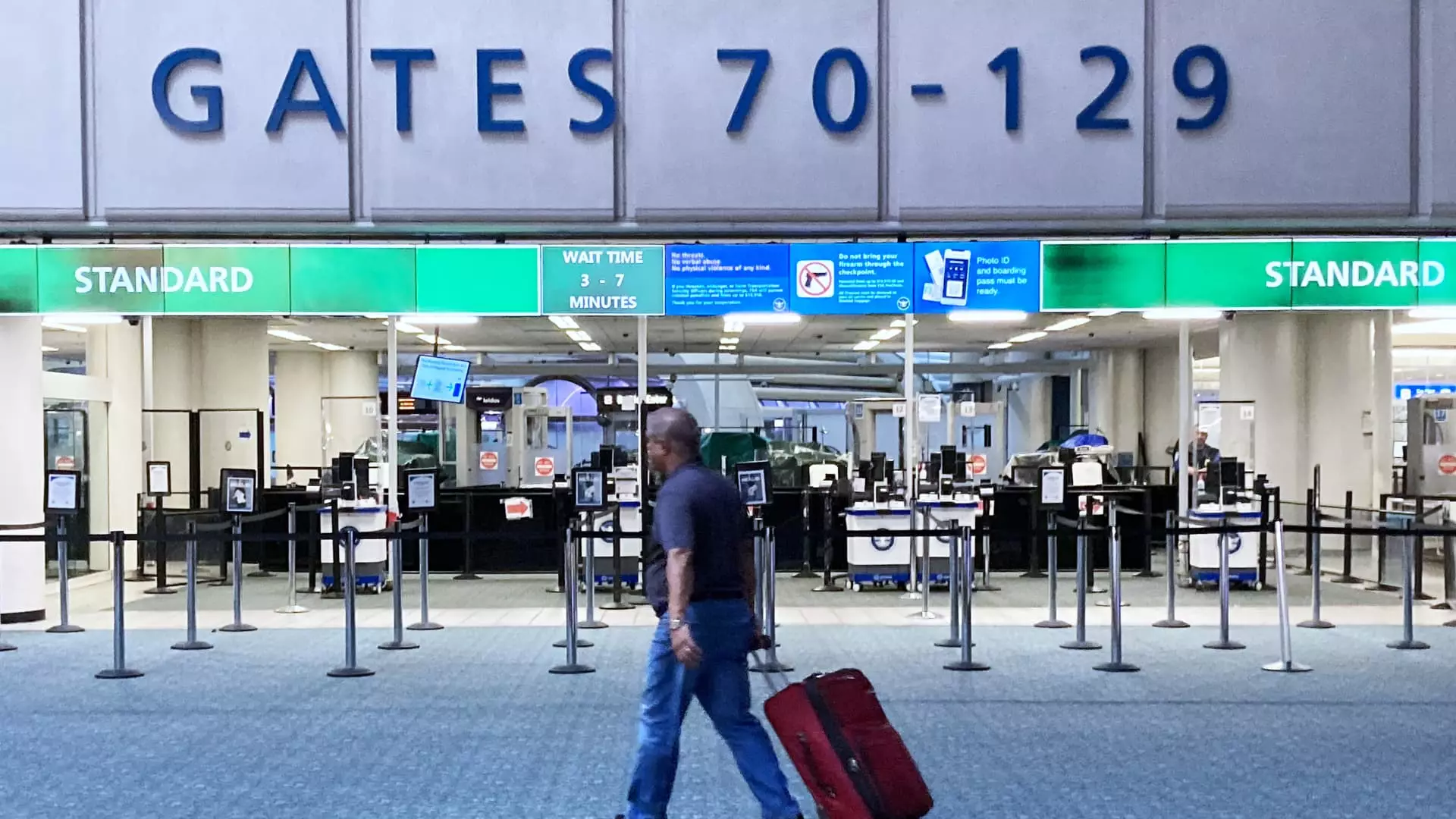As the holiday travel season approaches its peak, the United States teeters on the brink of a government shutdown, raising significant eyebrows across various sectors, particularly in travel and aviation. Lawmakers find themselves gridlocked over budget negotiations, with a recently proposed short-term funding bill—championed by President-elect Donald Trump—rejected in a contentious vote. Without a comprehensive agreement, operations for government services may halt as early as 12:01 a.m. ET on Saturday, which would have ramifications not only for federal employees but also for the millions of travelers expected to take to the skies.
The prospect of a government shutdown puts hundreds of thousands of government workers in precarious positions, with furloughs becoming a grim reality for those whose livelihoods depend directly on federal employment. Current estimates suggest that the travel industry could suffer an enormous financial blow—up to $1 billion weekly—if Congress fails to pass an updated spending bill and government operations cease. This calculation, provided by the U.S. Travel Association, underscores the weight of responsibility that federal lawmakers carry during this critical period. The association’s president, Geoff Freeman, articulately expressed concerns regarding the potential fallout of forcing essential personnel, such as Transportation Security Administration (TSA) officers and air traffic controllers, to work without compensation during such a heavily trafficked time.
The Logistical Challenge of Holiday Travel
Despite an impending threat of shutdown, flight schedules are still set to proceed as planned. Airlines themselves are bracing for what is anticipated to be an unprecedented surge in passenger volume. United Airlines, for example, expects to accommodate nearly 10 million travelers during the window from December 19 to January 6, reflecting a 12% increase over the previous year. The TSA anticipates it will screen over 40 million travelers through the holiday season, highlighting that air travel is still viable amid the turbulence of political strife. However, the ongoing deadlock in Congress could lead to slowdowns at airport security, which TSA administrator David Pekoske acknowledged, warning travelers of possible delays.
This is not the first instance the United States has faced a government shutdown, and lessons from the past remain relevant. The previous shutdown, which lasted over a month from late 2018 into early 2019, resulted in significant air traffic disruptions, particularly along the East Coast. The consequences were severe enough that they strained airport operations and led to delayed flights. Observers are keen to avoid a repeat of such a contentious period; however, with the potential of air traffic controller shortages ripe for recurrence, the aviation sector is bracing for unpredictable conditions should the shutdown take effect.
Calls for Leadership and Air Traffic Control Modernization
Amplifying these anxieties is the fact that the Federal Aviation Administration (FAA) currently lacks a permanent administrator as the agency approaches a critical juncture. After Mike Whitaker’s resignation on January 20, there will be increased pressure on the next FAA leader to prioritize modernization efforts for the air traffic control system, along with addressing the urgent need for hiring more qualified controllers. Delta Air Lines CEO Ed Bastian has raised essential points about modernizing air travel infrastructure, a challenge that will likely grow more pressing amidst the fiscal and logistical strains of a potential shutdown.
The Uncertain Future Ahead
While the political gridlock continues to unfold, both travelers and industry stakeholders must navigate the uncertainty that a government shutdown brings. If past experiences are any indication, sectioning off air travel operations while thousands of controllers and TSA agents work without pay presents not only a moral dilemma but a practical one as well. As the industry rallies to push for effective leadership and strategic improvements to policy frameworks, the looming specter of a governmental shutdown emphasizes the delicate interplay between politics and essential services, particularly during one of the busiest times of the year. The coming days will be critical in determining the outcome, as all eyes watch Congress to see if they can come to an agreement before the clock runs out.


Leave a Reply